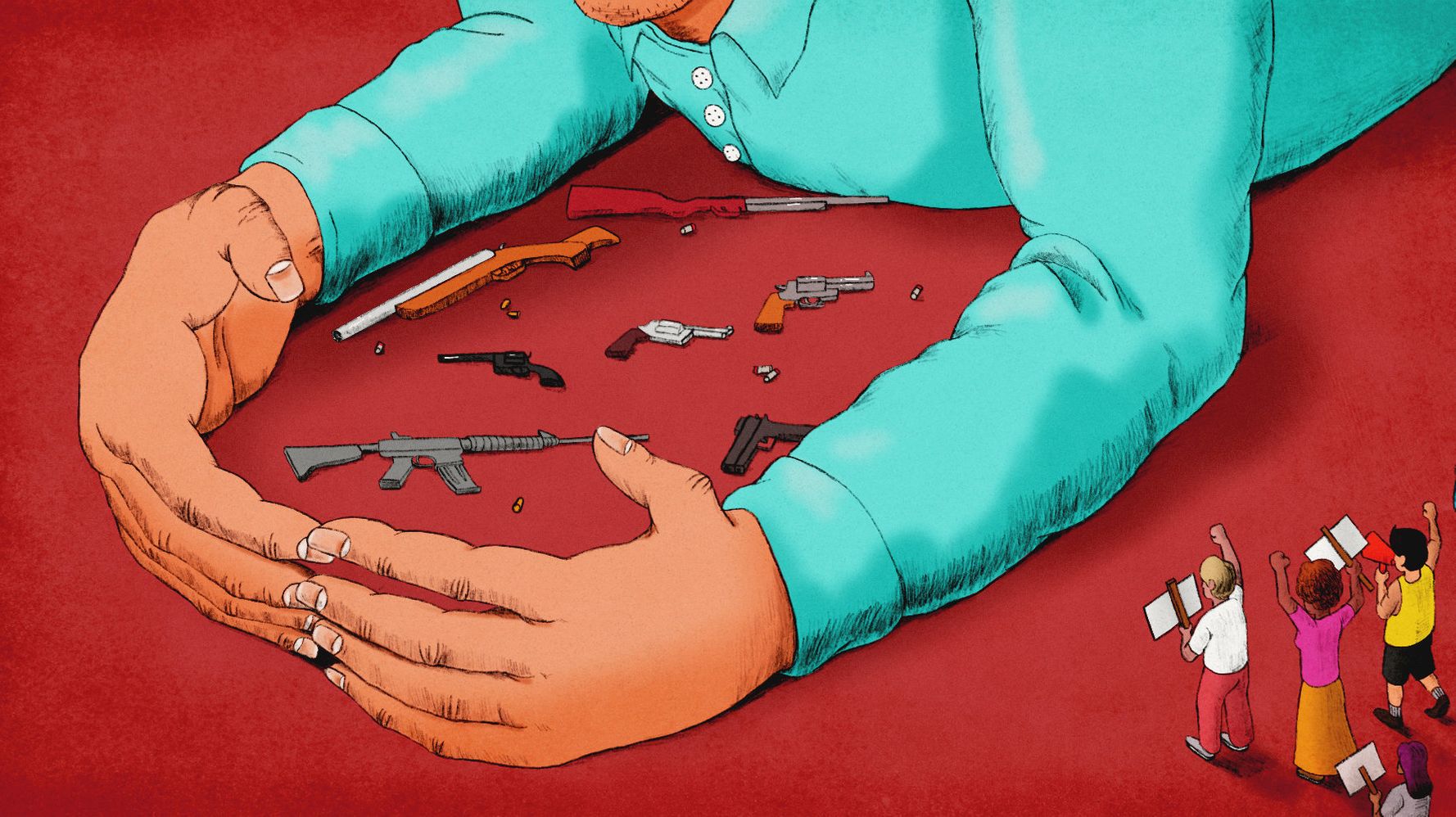[ad_1]

Half of all guns in private hands ― about 133 million of them ― are owned by a mere 3 percent of the U.S. adult population. These people, called “super-owners,†own 17 guns each on average. They represent a small and intense, mobilized and engaged minority, and they form the base of the National Rifle Association.
Appealing to these super-owners and their sense of responsibility is the key to unlocking new gun safety laws.
Super-owners are more often than not the prototypical “good guys with guns.†They’re antiques collectors. They’re firearms instructors, gunsmiths, cops and competitive shooters. They’re preppers and survivalists who anticipate the end of the end of the world as we know it, and they’re skeptical (and in many cases fearful) of Big Government. They’re more likely to be male and conservative, white and often own a gun for protection.
While it’s of course possible for super-owners to overestimate their own firearms competencies, lose count of the exact number of weapons in their possession, and even neglect to store their collection safely, super-owners generally pose little threat to public safety. (Yes, a super-owner perpetrated the worst mass shooting in modern U.S. history in 2017, but the Las Vegas gunman is the exception, not the rule.)
And this is why super-owners vehemently oppose gun control. They see it as an affront to liberty, punishment for a crime they didn’t commit, and often say the only way they’ll give up their firearms is if the guns are pried from their cold, dead hands.
So what happens to these 133 million guns after their super-owners die?
Guns are durable goods, and they will certainly outlive their parents. America is getting older, and gun ownership rates are high among our elderly. So the stage is well set for a massive influx of pre-owned firearms coming up for sale in the secondary market (in which federal law doesn’t require transaction records or criminal background checks of prospective gun buyers) in the not-too-distant future.
Super-owners can leave a lasting legacy of personal responsibility and render moot the other gun control measures the NRA is most afraid of.
A February 2017 survey found that 22 percent of current U.S. gun owners who acquired a firearm within the past two years did so without a background check. (The rate was 57 percent for people living in the 31 U.S. states without regulations on private firearm sales.) Unless laws change, it’s likely these super-owners’ vast gun collections will be gifted to or inherited by family and friends ― assuming of course they even have a will. If they don’t, the firearms will be sold off to the highest bidder at open estate sales or through online private transfers.
Do America’s super-owners, the “good guys with guns,†trust that in the event of their death, others will be as equally responsible with those firearms? And are the rest of us comfortable with 133 million guns going back into circulation without vetting their new owners’ backgrounds?Â
Leading experts in criminology, public health and law consider background checks performed by a licensed firearm dealer, law enforcement agency or other neutral third party arbiter to be the most effective way to reduce rising gun deaths, including suicides. And about 80 percent of all Americans support background checks for private sales and at gun shows. Polls show majority support for comprehensive background checks even among NRA members, but to pass common sense gun laws, lawmakers need super-owners to share in that common sense and speak out against the NRA’s more extremist positions.
The first step is redefining and reframing universal background checks as good succession planning. Only by closing the private sale loophole can super-owners ensure the safe redistribution of their valuable collections.
The second step is to engage super-owners not as deplorable gun nuts but as discerning gun experts who matter. Super-owners are immersed in gun culture and perfectly positioned to sell a policy that has the approval of 91 percent of Democrats, 83 percent of Independents and 72 percent of Republicans. But they’ll only do so if they are treated with the respect that all law-abiding gun owners deserve.Â
The NRA needs satisfied members given the organization’s ongoing financial issues. For too long, it hasn’t represented gun owners’ views on major gun policy issues ― or the views of its own membership, for that matter. By coming out in strong support of background checks, super-owners can leave a lasting legacy of personal responsibility and render moot the other gun control measures the NRA is most afraid of ― like a federal gun registry, a ban on all semi-automatic firearms, and a full repeal of the Second Amendment. This is the grand bargain that guarantees bipartisan support for the will of the people and snaps the NRA back to reality.
Super-owners prove that small groups can make a big difference. Americans have grown familiar with the widening wealth gap between the 1 percent and everyone else when we talk tax policy. When we talk gun policy, the topic of inequality rarely if at all features. But on guns, the 3 percent, not the 1 percent, own the future.
James Densley, Ph.D., is Associate Professor of Criminal Justice at Metropolitan State University and co-founder of The Violence Project. Follow him on Twitter @theviolencepro.
David Squier Jones, MS, is a researcher at the Center for Homicide Research and a former police officer. Follow him on Twitter @SquierDavid.
Calling all HuffPost superfans!
Sign up for membership to become a founding member and help shape HuffPost’s next chapter
[ad_2]
Source link





